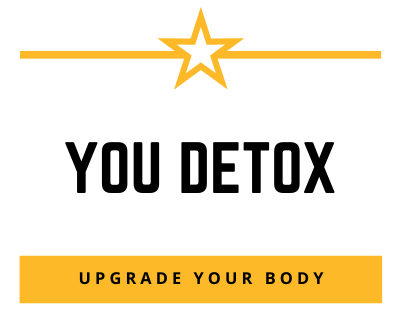In 5 rules, let’s focus on food that can be easily digested, boosts the functioning of the liver, intestines and kidneys, and gives you new energy. A detox cure to be followed for two weeks after the holidays to drain off any excess.
Summary – Detox: the 5 rules
- Favour the natural
- Eat fruits and vegetables at every meal
- Get your hands off animal products
- Hydrate all you want
- Reduce salt
- Three popular questions answered
The food we eat is modified and used by our body to function. That is when everything is fine. Because, like all machines, the body may experience malfunction, especially because of overeating.
The solution to erase these excesses? Neither a strict diet nor fasting. “To resurface, the body needs nutrients that will help it eliminate and regain energy”. And you don’t skip meals either, it’s counterproductive. This detox program of a few days is above all a way to get back to a healthy diet. There are few contraindications (pregnancy, breastfeeding…).
Favour the natural
Industrial processed products contain additives, saturated fats (sometimes hydrogenated), modified sugars (glucose-fructose syrup…) and salt that disrupt digestion and elimination. Refined, they are also almost devoid of fibre, vitamins and minerals.
What you need to do:
- Start by sorting through your kitchen! No more ready meals, dairy specialties or other processed products.
- Fresh or frozen, only keep the raw (vegetables, fruit, fish, white meat, plain dairy products, etc.).
- For starchy foods, prefer unrefined cereals and pulses, which are rich in fibre.
- And we practice an assembly cooking by favouring soft cooking methods (stewed, steamed, wrapped) which facilitate digestion and preserve the nutritional qualities as well…
Eat fruits and vegetables at every meal
Fruits and vegetables contain all the nutrients essential for elimination: potassium, which combats water retention and speeds up diuresis, fibres that trap toxins and evacuate them in the stool, antioxidants that reduce inflammation and support the organs in their elimination process, and nitrates that promote tissue oxygenation.
What to do: Eat fruits and vegetables at every meal! Among the most detoxifying foods: leek, artichoke, sweet potato, cabbage, apple, lemon, mango…
- During the first week, choose cooked and hot dishes (steam, purees, compotes, soups…) to facilitate digestion and protect the intestines.
- In the second week, mix with raw food to allow the body to benefit from more vitamins.
Get your hands off animal products
Because they are rich in protein, meat, eggs, fish and seafood cause the production of waste products (uric acid), the elimination of which puts extra work on the kidneys. In addition, fatty meats, milk (especially cheese) and animal fats (butter, cream) contain saturated fats that are difficult to digest.
What needs to be done:
- During the first week, a small portion (about 100 g) of meat or fish is eaten at lunchtime, with preference given to lean cuts, and in the evening, 100% vegan, i.e. without animal products (meat and fish, but also eggs and dairy products).
- In the second week, keep the lunch portion and eat vegetarian in the evening. Butter and cream are exchanged for rapeseed and nut oils rich in omega-3, anti-inflammatory fatty acids that promote liver function.
Hydrate all you want
Water boosts the performance of the emunctory organs, especially the kidneys, evacuates water-soluble toxins, makes the blood more fluid and promotes transit by combining with dietary fibre. Water remains the most efficient “drainer” of the body.
What needs to be done:
- During the first week, still water, possibly with a little lemon juice, herbal teas and rooibos, a non-exciting South African plant with antioxidant properties, are drunk regularly. At the table, take a glass of water rich in bicarbonates and drink soups.
- The second week, continue to hydrate well, this time favouring mineral waters rich in… minerals, especially magnesium, and fresh homemade juices to recharge the body with vitamins and minerals.
Reduce salt
Festive products are full of salt: smoked salmon and meats, appetisers, cocktail crackers… However, excess sodium promotes water retention in the cells, thus causing swelling, and it slows down the elimination of waste products through the kidneys.
What needs to be done:
- The first week, we skip the salt shaker. Spices and herbs are used to give taste, which also contain many antioxidants.
- In the second week, salt is gradually reintroduced and its use is moderated.
Three popular questions answered
What’s the point of detox? It is to restore balance in the body after excesses. The abuse of alcohol, saturated fats, proteins and salt causes an overload of the body which must metabolize more nutrients and eliminate more waste. This overflow leads to digestive disorders and fatigue, but also to inflammatory effects (hepatitis, gout, renal colic…) and the formation of free radicals, the main cause of cellular ageing. A detox will relieve the organs of purification that are the liver, kidneys and intestines, and fluidify the blood.
In practice, how does it work? We hydrate ourselves a lot by drinking a quarter to half a litre of water per hour (i.e. 2 to 4 litres per day), and by consuming soups, broths and juices. Fruits and vegetables should be given pride of place, giving preference to those that make elimination easier, and we rely on rapeseed and nut oils, the richest in omega-3, for seasoning. We eliminate alcohol, reduce meat and fish and no longer salt our plates. These rules are applied as much as possible for the first few days and as time goes by, more flexibility is introduced to return to a “normal” diet.
What results can be expected? From the very first hours, we find a better digestive comfort, we feel less smeared and we lighten by 1 to 2 kilos. As the days go by, the complexion brightens, fatigue and headaches fade, the stomach becomes flat again, and transit regains its regularity. The superfluous kilos continue to be lost, then stabilize.


Recent Comments